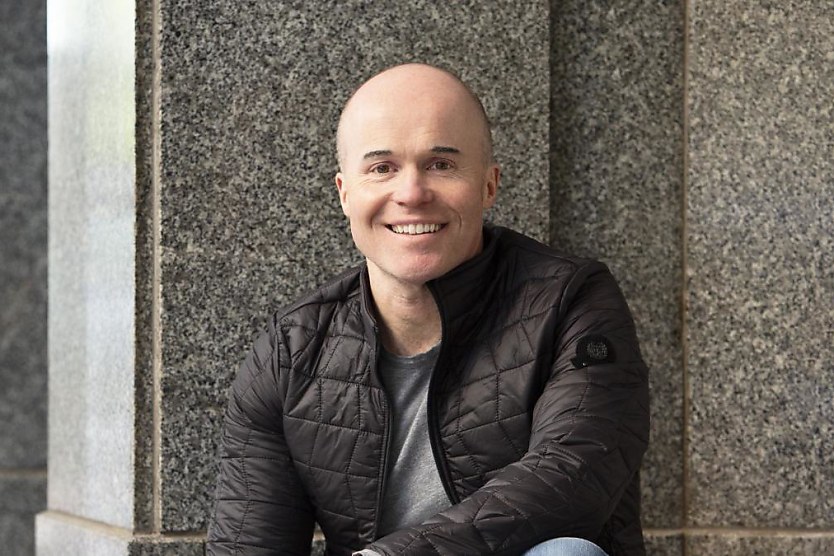Identity: Does your job define who are?
SHARE THIS ARTICLE

Defining ourselves based on the job we work is a slippery slope that can have negative effects. When we become results-driven, we’re more prone to anxiety, stress, and depression.
HR Leader recently spoke to emotional fitness expert Joe Pane, who touched on the issues that can arise when workers define themselves solely on their job role while lacking those hobbies outside of the workplace that can act as a form of escapism.
Pane strongly stated that identity is a core principle when it comes to our emotional fitness and how we can juggle our work/life balance.
“Identity is the single most powerful force in the human condition. The reason why it’s powerful is because what we allow ourselves to be defined by effectively owns us psychologically. If my identity is defined by the results I get from the role that I have in my profession, it means that the wins and the losses that happen, I’m going to take profoundly personally,” Pane said.
“I’m going to become hypersensitised to how well I’m progressing and doing in my job role. The issue with that is it leads to all kinds of negative vulnerabilities, vulnerabilities that work towards amplifying anxiety, depression or anything else associated with that.”
If your role becomes the main emotional vehicle for you, it can open up a slippery slope towards negative emotions like depression, anxiety, and stress. Especially when that results-based mindset is involved, it’s good and well when the results are positive, but when they change towards the negative, the emotional ramifications can be extremely damaging.
“See, our role can be a psychological vehicle for us to experience who we’re becoming, and using the vehicle as a journey to be enjoyed and defining ourselves by our character, by who we’re becoming, rather than the roles that we play. Then you’re not as psychologically vulnerable to anxiety and depression,” Pane said.
Comparison is another issue that arises with the results-based mindset, as comparison can often be the thief of joy. When we’re constantly looking at our colleagues and comparing our results with theirs, it can put added pressure on us to maybe catch up with them, or best them in some form.
Being attached strongly to the outcome of anything in the work environment makes us vulnerable to something that is completely out of our control. However, no matter what mindset we have, negative emotions can arise out of thin air, and that’s OK. Knowing how to deal with that can be crucial to getting back to productivity and normality.
“We have to understand that stress, anxiety, and depression are normal reactions to challenging situations. Your degree of anxiety or stress around a challenge demonstrates how much you care about that particular thing. If you didn’t care, you wouldn’t feel anything,” Pane said.
“Where anxiety becomes a problem is when anxiety levels keep going up regardless of the stimulus. In other words, the stimulus might disappear and you still feel anxious. They call that, in psychology, free-floating anxiety. That’s when it becomes a real problem.”
Hobbies can help
Getting out of that state of free-floating anxiety can be a difficult endeavour. Having hobbies outside of work can be a great emotional release from that attachment you have to your job role.
“Something that can help massively reduce that anxiety and eventually get rid of it is by having healthy outlets outside of work. It’s one of my favourite ways of people managing uncertainty in a very healthy way. To minimise the impact of anxiety is to have a hobby outside of work that is meaningful to you. Meaningful in this context means aligned to your abilities and strengths,” Pane said.
“It’s important that you have these hobbies that you can connect with two, three, four times a week because what that does is it gives you something to look forward to. When you’ve got something to look forward to, you can navigate the uncertainty of the day a lot easier.”
That “looking forward to” aspect is crucial to dealing with uncertainty, depression, and anxiety. If there’s a light at the end of the tunnel, so to speak, then you know that the feeling of anxiety or depression will pass and that you will get through it.
“If we don’t have anything to look forward to, it’s easy to fall into depression. If our future is hopeless, or we’ve got nothing at all to look forward to, no positive expectation of the future, then it makes everything else feel more intense,” Pane said.
“Any challenge that comes along, any form of uncertainty that comes along, it’s going to be amplified and we’re going to fall into this depressed and anxious space versus having something and other things to look forward to.”
Overall, getting out of that results-based mindset and not letting your job define you are the first steps to escaping those harrowing feelings of depression, anxiety, and stress. Having those healthy escapes can be the catalyst for pivoting out of the work-only mindset and be the basis for having the perfect work/life balance.
“You’ve got the big picture stuff that happens two or three times a year that you’re looking forward to whatever that event is. And then you’ve got the micro stuff happening every week. Let me tell you, these are basic fundamental seeds to feel happy and fulfilled,” Pane concluded.
“The reason why you can feel happy and fulfilled is because you’re noticing progress in those hobbies. And progress is one of the core ingredients of joy.”
The transcript of this podcast episode was slightly edited for publishing purposes. To listen to the full conversation with Joe Pane, click below:
Kace O'Neill
Kace O'Neill is a Graduate Journalist for HR Leader. Kace studied Media Communications and Maori studies at the University of Otago, he has a passion for sports and storytelling.

